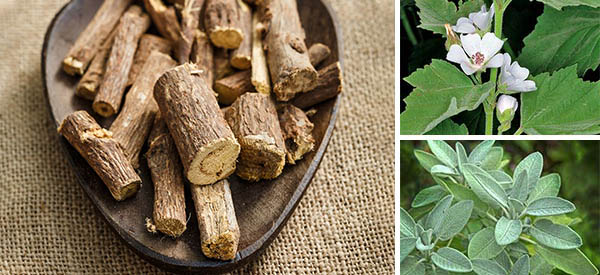
Best Herbs for Lungs and Respiratory Support
Disclaimer: This article is for information purposes only. It is not intended for diagnosis or to replace professional medical advice. Herbal medicines can produce adverse effects and are not suitable for all people, even when using lung cleansing herbs.
With the Center for Disease Control estimating that adults suffer 2 to 3 colds every year, it is clear that common respiratory illnesses are a regular annoyance. Modern medicines may help relieve some symptoms, but they rarely address the underlying causes of the infection and can leave you feeling drowsy and lethargic.
If you’d rather not reach for the medicine box every time a cold strikes, there are a number natural remedies that can help relieve your symptoms just as effectively as over-the-counter medications, and help keep infections at bay while they improve lung health. And the great news is, many of them may already be growing in your back yard!
1. Fennel
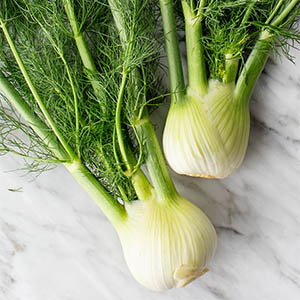 Tea made from fennel seeds can help with asthma and shortness of breath.
Tea made from fennel seeds can help with asthma and shortness of breath.
The tea can be made by steeping seeds in hot water, or for a stronger effect boil the seeds for ten minutes.
Wild fennel has stronger medicinal properties than common fennel, and sweet fennel is milder still, but all three have been used to treat respiratory conditions.
2. Hazelnut
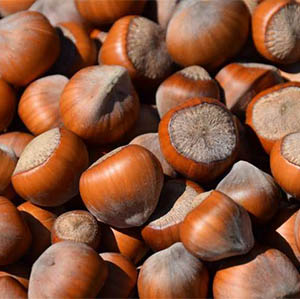
Hazel is not a commonly-used herbal medicine, but the treatment is good for persistent coughs that won’t seem to clear. The medicinal form of hazel is based on hazelnut milk mixed with honey and warm water.
To make the milk, soak the nuts in the refrigerator overnight, mix them in a blender until they are finely ground, and then strain through cheesecloth to separate the fibrous part from the milk. Adding a little black pepper adds decongestant properties to the mixture and is perfect for treating a head cold.
3. Licorice
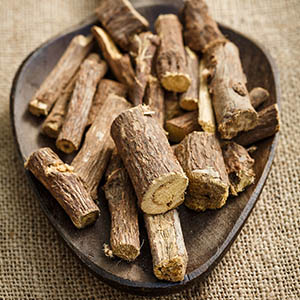 Licorice has been used in traditional medicine for a variety of conditions across a variety of cultures, from ancient Egyptian to ayurvedic medicine. Tea made from the boiled root helps suppress a cough and relieve wheezing and shortness of breath.
Licorice has been used in traditional medicine for a variety of conditions across a variety of cultures, from ancient Egyptian to ayurvedic medicine. Tea made from the boiled root helps suppress a cough and relieve wheezing and shortness of breath.
A word of warning: taking too much licorice can have side effects, including raised blood pressure and low potassium levels. From scientific studies, it is recommended to limit your intake to around 100ml of licorice tea each day.
4. Marshmallow
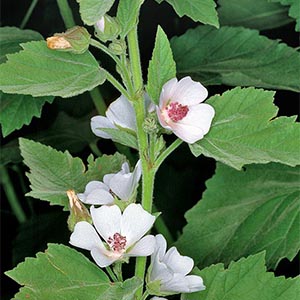 There is no doubt you are familiar with marshmallow as a confectionary product – but did you know that marshmallows were originally a throat medicine?
There is no doubt you are familiar with marshmallow as a confectionary product – but did you know that marshmallows were originally a throat medicine?
Centuries ago, doctors used to make throat lozenges from the roots of the marshmallow plant, Althaea officinalis, mixing the juice with egg white and sugar to create a meringue.
This was the origin of today’s marshmallows, although the modern recipe no longer has a medicinal effect.
If making lozenges seems like a lot of work, tea made from the roots or leaves of the marshmallow plant boiled with honey makes a soothing throat medicine. The seeds can also be boiled in milk to make a good treatment for chest infections.
5. Mint
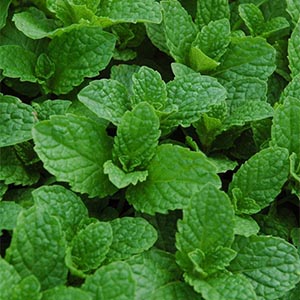 Mint is a famous herbal remedy, and menthol extract is found in most over-the-counter cough and cold medicines for its decongestant properties.
Mint is a famous herbal remedy, and menthol extract is found in most over-the-counter cough and cold medicines for its decongestant properties.
It breaks down mucus, relieving blocked noses and heavy coughs.
At home, mint steeped in boiling water can be used either as a tea to drink, or it can also be used for inhalation in a steam bath.
6. Nettle
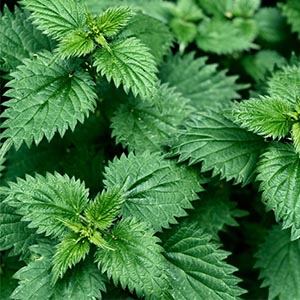 The common nettle is a great treatment for respiratory illness. Boiling the roots or leaves, with honey or sugar to sweeten if you prefer, produces an infusion that can be taken as a tea to help open the airways, or used as a gargle for tonsillitis and sore throats.
The common nettle is a great treatment for respiratory illness. Boiling the roots or leaves, with honey or sugar to sweeten if you prefer, produces an infusion that can be taken as a tea to help open the airways, or used as a gargle for tonsillitis and sore throats.
Cotton wool dipped in the infusion can be applied to the nose to stop a nosebleed.
Take care when harvesting nettles to avoid being stung, either by wearing thick gloves or by harvesting the leaves in a downward motion, opposite to the direction of the stinging needles.
Related: How to Cook Spring Nettles
7. Pine
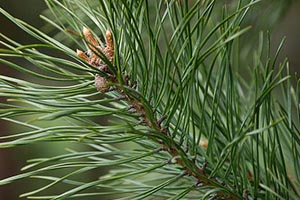 Pine needles contain vitamin C to support your immune system, as well as having antibacterial and expectorant properties.
Pine needles contain vitamin C to support your immune system, as well as having antibacterial and expectorant properties.
Pick the young needles and steep them in boiling water to make a tea to treat common coughs and colds.
8. Sage
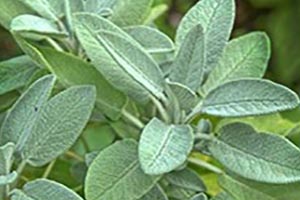 Sage, the common kitchen herb, makes an effective treatment for coughs and sore throats. Infuse either fresh or dried leaves in hot water to make a tea, which you can drink or use as a gargle.
Sage, the common kitchen herb, makes an effective treatment for coughs and sore throats. Infuse either fresh or dried leaves in hot water to make a tea, which you can drink or use as a gargle.
Be careful not to steep the leaves for too long, as the tea can be very bitter if it is too strong.
9. Thyme
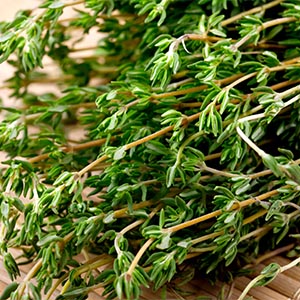 Thyme is another common herb for cooking that has long been used in traditional medicine.
Thyme is another common herb for cooking that has long been used in traditional medicine.
The leaves contain flavonoids which have a host of health benefits, from liver protection to cancer prevention.
Specific to respiratory illnesses, they have antimicrobial and antiseptic properties.
Tea made from thyme leaves can relax the throat and ease a cough.
10. Onion
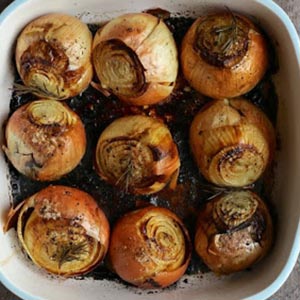 Onions have a host of health benefits in our diets, and it is no surprise that they are also good for respiratory illnesses.
Onions have a host of health benefits in our diets, and it is no surprise that they are also good for respiratory illnesses.
Roasted onion helps release tough phlegm and ease a cough.
If you like leeks, you’ll be glad to hear they share some of the same properties as onions, being closely related. Their effect is not as strong as onions, but can still help support your respiratory system when you are fighting off a cold.
Related: Why Put Onions in Your Socks Before Sleeping
Others
Blueberries
 Blueberries, and their European cousin Bilberries, have been used in traditional medicine for centuries.
Blueberries, and their European cousin Bilberries, have been used in traditional medicine for centuries.
The oldest recorded use of blueberries as medicine originates from Native American medicine, where blueberry juice was used to treat coughs.
Blueberry pulp boiled with sugar to make a jelly is also used as a cough relief. The high vitamin C levels in these berries contribute to a strong immune system.
Honey
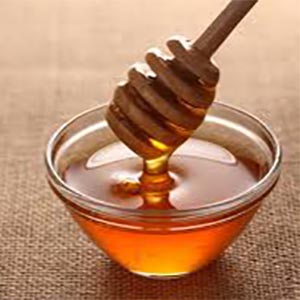 Not exactly a herb, but honey has been used in traditional medicine throughout the world for its antibacterial properties. These have been scientifically proven, and honey is even used in wound dressings in modern medicine to prevent bacteria from infecting the wound.
Not exactly a herb, but honey has been used in traditional medicine throughout the world for its antibacterial properties. These have been scientifically proven, and honey is even used in wound dressings in modern medicine to prevent bacteria from infecting the wound.
While honey has many immune-supporting functions and health benefits, understanding how the antibacterial properties work is important for using it correctly as a medication.
As honey contains such concentrated sugar, when it comes into contact with bacteria, it kills the bacteria by literally drawing water out of the bacterial cell.
To maximize this effect when treating a sore throat, swallow a spoonful of undiluted honey and then hold off eating or drinking for 30 minutes while the medication takes effect.
You may also like:
 How I Make My Own Cough Mixture
How I Make My Own Cough Mixture
Similar to Morphine: The Best Natural Painkiller that Grows in Your Backyard (Video)
Homemade Ginger And Chickweed Poultice For Circulation And Sore Muscles

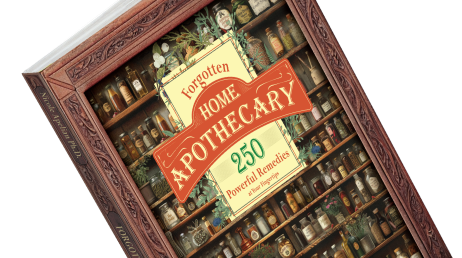






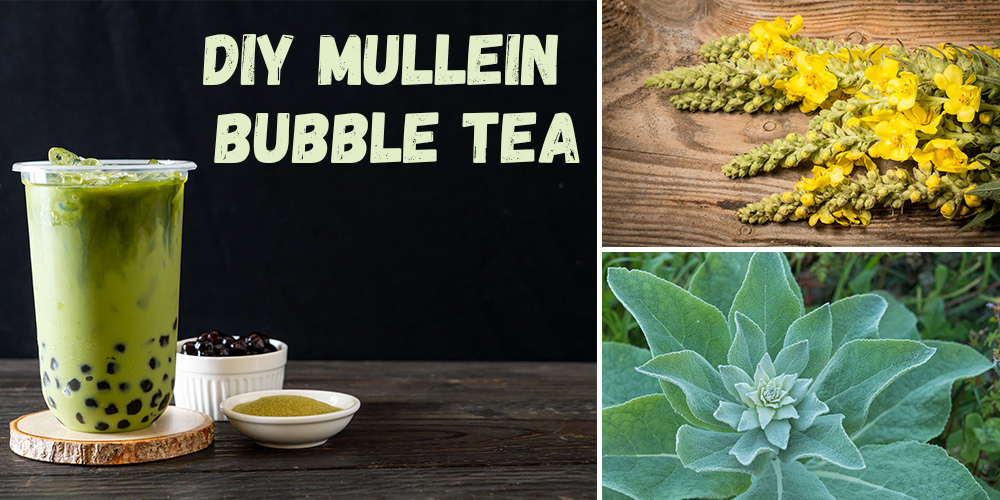
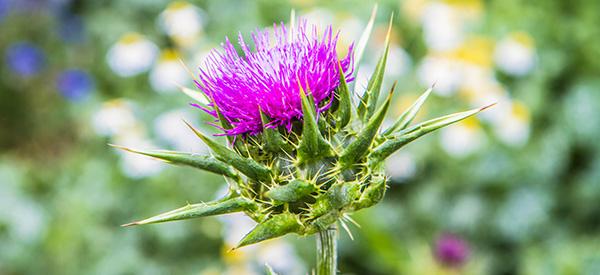
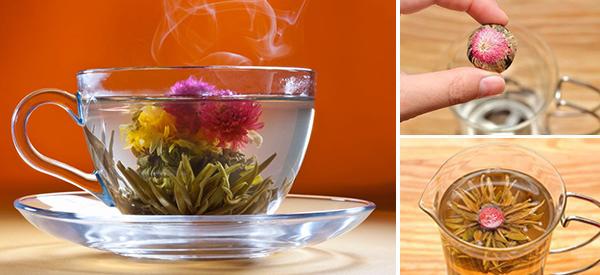
I just received my lost book of herbal remedies. I absolutely love it. I can’t wait to try them.
Hi Heather,
Thank you so much for your purchase and kind words. We really appreciate it.
God bless!
Me too! Great information coherently arranged. Love it!
Very disappointed…I received a downloaded version of a book I wanted for my small library. At my age books are much more appreciated than computerised downloads. I paid $37 for a download which at my age as a pensioner of 83 years i consider as being a rip off and especially since I am forced to use a computer to read the download. Really disappointed.
Thank you so much for sharing this information. I have one of your books, but these digital articles make it easier to share with friends and family.
Hi Lisa,
Thank you so much for your comment. We really appreciate it you sharing our articles.
God bless!
Thank you. I’ve read that fennel seeds can be a natural birth control substance, and even lead to permanent sterility – although that sounds like it might be an exaggeration. If one drinks fennel seed tea regularly, are there any fertility consequences you know of?
Hi Always,
In the past fennel seeds were used a natural birth control substance. Here is an article about this: https://www.nationalgeographic.com/culture/food/the-plate/2016/08/fennel–multitasking-vegetable–ancient-birth-control/
God bless!
Thanks for the link. I coudn’t read all of it, but do you think there is any danger in using fennel sea tea regularly – in that it could make one lose one’s fertility?
I just got your book too, this information makes my heart soar so high…
Hi Patrice,
Thank you so much for your purchase. We are really glad you like the book.
God bless!
I received my book and I am so excited that I don’t no where to start first. I would like to make something for respiratory problems but I am not sure which one I should do. Can you suggest one for me. I am 72 years old.
Hi Veronica,
Thank you so much for your comment. We are really glad you like the book.
You can try any of the plants recommend in the book. It is important to exercise caution, it might be best to start with a small dose and go from there.
God bless!
What are your thoughts on Osha for respiratory and lung support?
Hi Jenny,
Thank you so much for your comment.
Osha root can help alleviate breathing concerns in a number of capacities. Osha root helps clear mucus from the sinuses and lungs by increasing expectoration; this relieves congestion and makes breathing easier. Osha root also increases blood circulation to the lungs, which increases dilation during constriction. For this reason, it is of particular interest as a support mechanism for emphysema, pneumonia, asthma, and allergies.
God bless!
I’m wondering why Indian tobacco, AKA lobelia or puke week, isn’t in this article for lung health. Studies have shown it to work great for clearing mucus from the lungs, it helps when quitting smoking and has shown to actually heal the lungs. I use it quite often for allergies and colds.
Hi Linda,
Thank you so much for your comment.
We appreciate that you shared this information with us!
God bless!
I’ve heard that lungwort (Pulmonaria) is or is not helpful. What are your thoughts on this?
It’s a lovely plant, all the same.🙂
Thank you so much for the wealth of information, in your book and I really like this format. I recently found the info for making a natural first aid kit. Very helpful. Thanks again!
Hi Linda,
Thank you so much for your feedback.
We are glad to hear that you find the book and the articles useful.
God bless!
Thank you love your book it has helped me reverse and control my diabetes, along with healing my gut flora of parasites. I’m no longer have inflammation. I feel so much better.
What did you use for healing your gut/ inflammation?
I was excused from normal life responsibilities but natural herbs from multivitamincare org really helped a but sometimes I think is God prodigy that I was able to treat my Chronic obstructive pulmonary disease but multivitamin care herbal formula has a big impact on my recovery because my heart condition has been fully reversed . They do things for me, and were too happy to comply with their service. This is an equitable way to get off your COPD emphysema .
I really enjoy your articles. You produce excellent information that is always interesting and helpful to know. Thank you for such great content.
[…] Best Herbs for Lungs and Respiratory Support […]
[…] Best Herbs for Lungs and Respiratory Support […]
I’m very surprised not to see Mullein on this list as it is one of the main herbs associated with lung health. Is there a reason you omitted it?